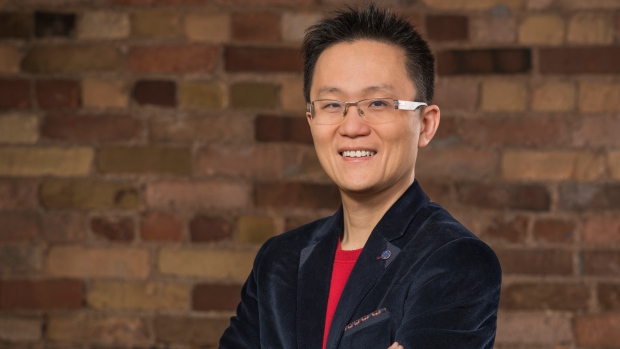Aug 30, 2019
'Don’t waste time': This summer job taught Wattpad's CEO how to innovate
, BNN Bloomberg

This is part of BNN Bloomberg’s series on the formative summer jobs that helped shape the careers of Canadian business leaders.
It was the summer of 1989. Allen Lau was furiously building a prototype for Toronto’s public transit authority: A passenger-counting device that could be mounted near the entrance of a vehicle.
“At the time, without Presto, it was impossible to track how many people came on each bus at a given time,” Lau said in a phone interview, referring to the Toronto Transit Commission’s (TTC) electronic payment system for transit users.
Lau, now 50 and CEO of Toronto-based online story-sharing and publishing platform Wattpad Corp., worked on that project between his second and third undergraduate year of engineering studies at the University of Toronto. He found the position through an ad posted on a literal job board on campus. His employer, a small technology consulting firm called Techno Scientific Inc., paid him about $10 to $11 per hour, well above the minimum wage of $5 in Ontario at the time.
He distinctly remembers racing against the clock.
“From the start of the project, to someone from the TTC viewing the demo, I had only four weeks to build something from scratch,” Lau said.
After many failures, Lau completed the prototype on time. He doesn’t know what ever became of it — but he finished the job. He went on and completed a master’s degree in electrical engineering, worked briefly at IBM Corp. and a few different tech startups, started a mobile gaming company, and in 2006, finally launched Wattpad with co-founder Ivan Yuen.
Below, Lau discusses how that summer job taught him the value of time, why he ditched corporate life, and his advice to aspiring entrepreneurs.
Q: What was the hardest thing about working on that transit prototype?
A: I had a hard deadline. We already made the appointment for people to come see the demo. I had to make it work, even though there were lots of failures in the first week or two. There were quite a few different ideas to measure people coming on and off buses. The first idea didn’t work, the second didn’t work, the third was better and the fourth idea worked even better. I had to keep iterating – and iterating fast.
Q: How did that meeting with the TTC go?
A: The demo went pretty well. It wasn’t 100 per cent accurate, but good enough for the demo. It met the objective.
Q: What was your biggest takeaway from that job?
A: You only have a fixed amount of time to get an idea to work. In many different products I started, it held true. Time is extremely limited — don’t waste time. If the first version doesn’t work, you cannot get stuck, you have to figure out a different version.
Q: You went from a corporate gig to working in startups. What motivated that transition?
A: I was at IBM for just a few months because I quickly realized I cannot work for a large company. It was too slow, too bureaucratic. There were so many processes I had to go through to get things done. It was like pushing water uphill. It’s just not me. I’m a hustler.
Q: What’s your advice to young people who want to create their own opportunities?
A: For people who are just starting, who just graduated, I think it’s a very good idea — even if they have a million different ideas they want to focus on — to work for a startup for a year, or two or three years. The best way to learn something is to learn from someone who has done this before. It’s not to say that people without experience can’t start a company, a lot of people have done that. But many successful companies are not necessarily started by people straight out of school.
This interview has been edited and condensed for clarity.




